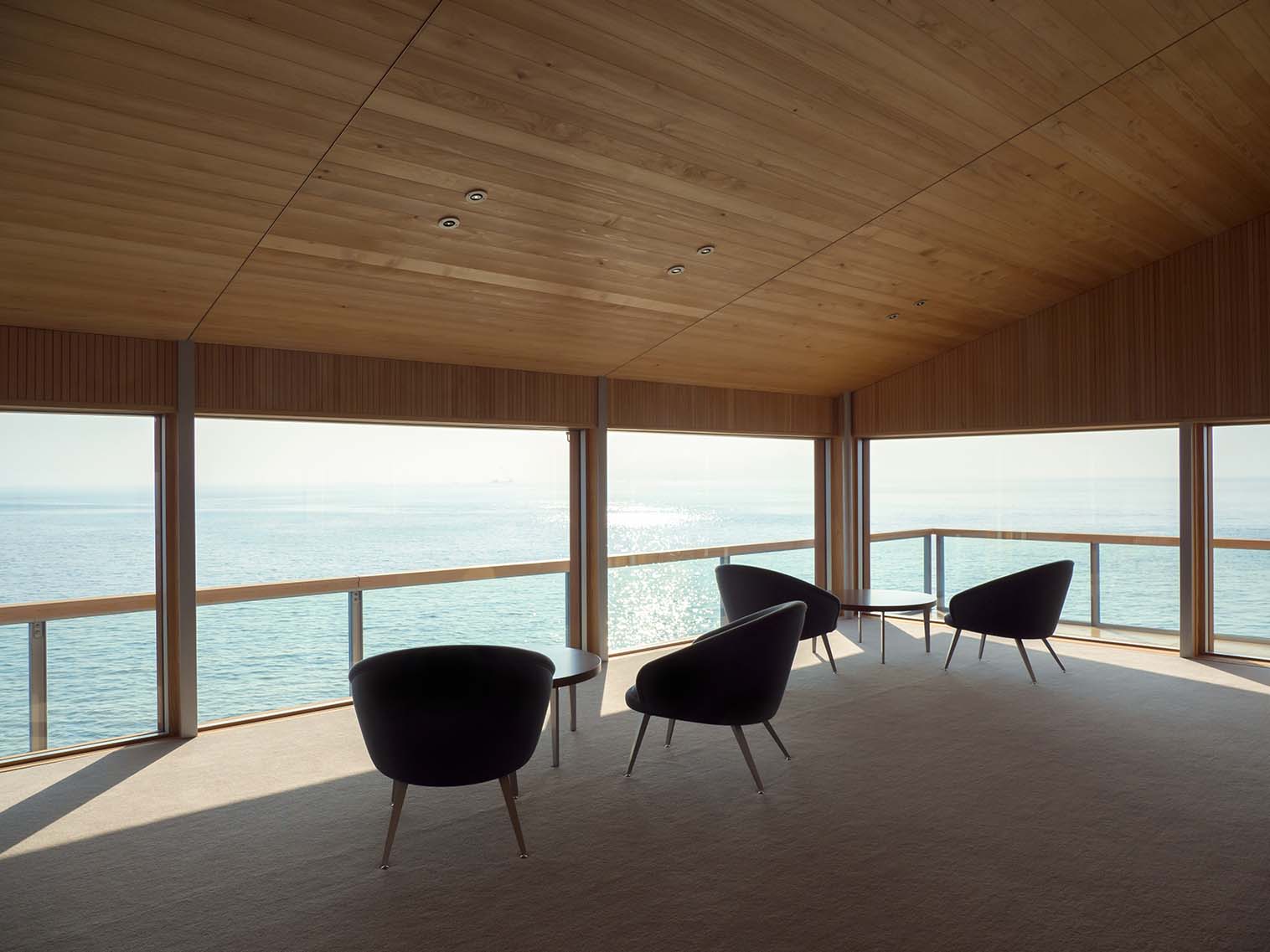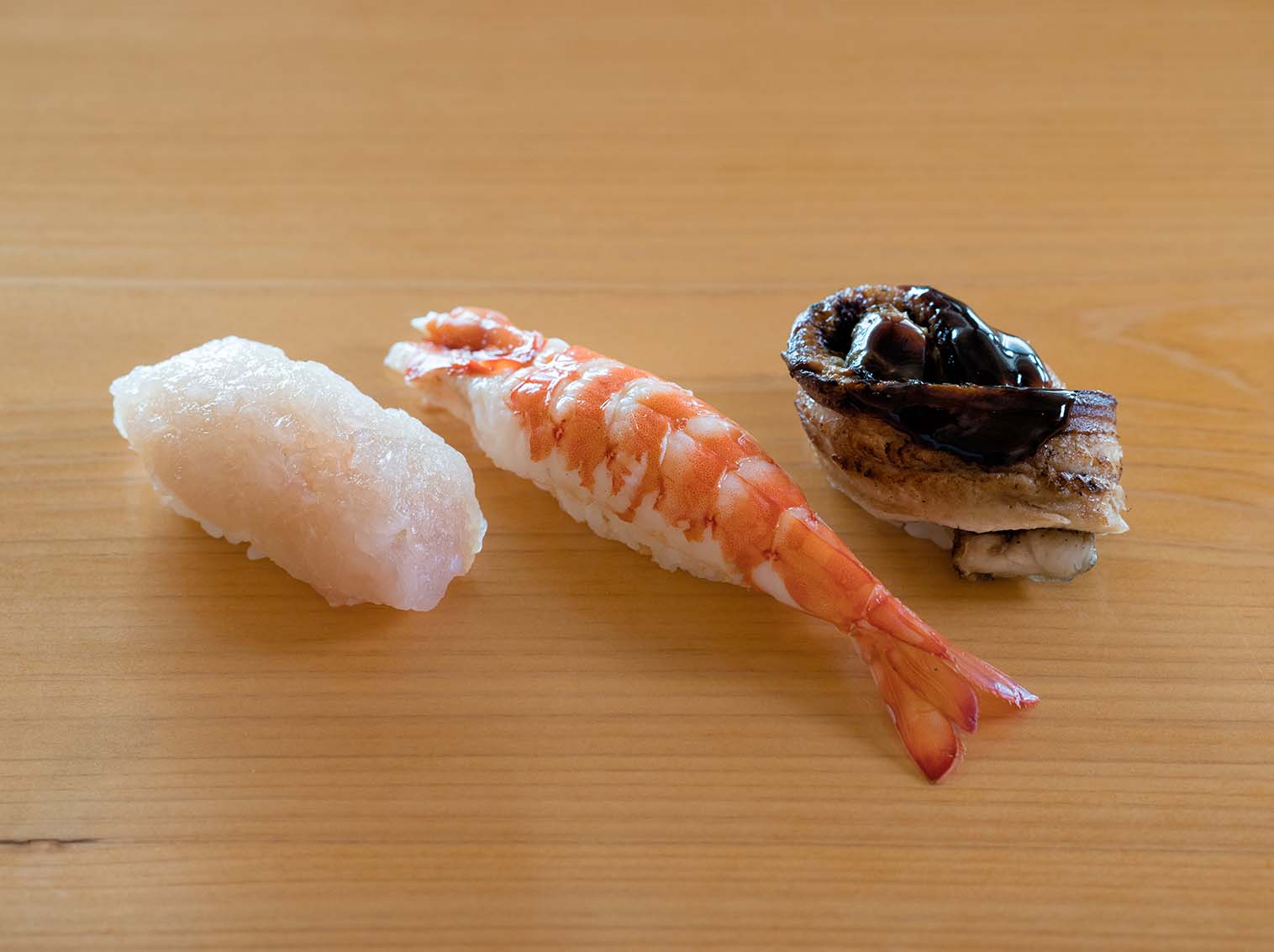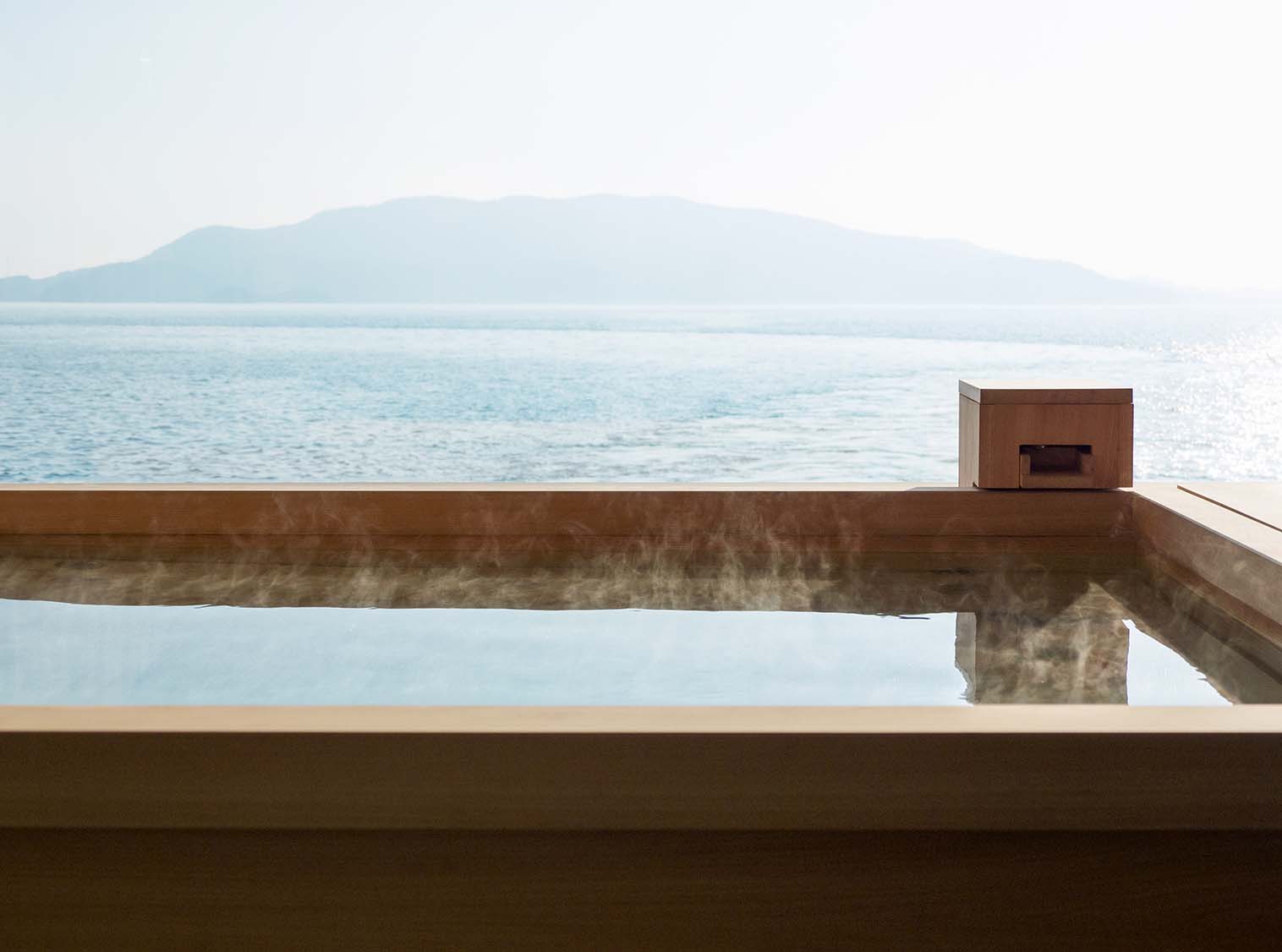

Floating east or west from Hiroshima’s Onomichi City, this three-decker boutique hotel cruises between hundreds of islands along the Seto Inland Sea, between the Pacific Ocean and the Sea of Japan. The impeccably designed (and trending) vessel is called guntû, named affectionately after a small local blue crab, and in cruise ship terms, the name certainly fits. This isn’t your typical mega-yacht, nor is it a stuffy, grandma-style cruise filled with thousands of tourists. Instead, it’s a minimalist designed hotel that’s focused on giving guests a chance to tune out and connect with themselves, the sea and its delicious fare, and the islands’ charming communities.
Photography courtesy of © guntû

Award-Winning Design
Award-winning Japanese architect Yasushi Horibe is behind the design of the stunning floating vessel. There are nineteen spacious wood-paneled suites aboard, each with floor-to-ceiling windows that look out to the sea, and each evoking the feel of a traditional ryokan. There are four types of cabins, including the guntû suite at the bow of the ship, which has a terrace with an outdoor bath and another terrace with a daybed. Each space is thoughtfully designed to encourage restfulness and a connection to the surrounding views of hilly islands, historic destinations and small fishing villages.




Regional Setouchi Fare
There are multiple dining spaces aboard the ship, including both indoor and outdoor settings. You might stop in at the six-seat sushi bar to see what chef Nobuo Sakamoto is offering from the day’s freshest catch, or you might opt to sit out on the deck and enjoy a traditional Japanese tea ceremony with matcha and beautiful handmade sweets. If you’re up to a multi-course meal with local, seasonal Setouchi flavors, head to the wood-paneled dining room for an extravagant dining experience from well-known Tokyo chef Kenzo Sato of Shigeyoshi.



Art, History and Adventures
Depending which route you opt for on your journey aboard guntû, you might stop at the island of Naoshima and explore its hillside art museums, or you might visit the Itsukushima shrine in historic Miyajima. Each day aboard the ship offers an opportunity to hop on a small speedboat and enjoy an excursion into the local islands and communities.

The Japanese Art of Relaxation
For those who prefer to embrace the luxurious art of doing nothing but relaxing and watching the islands go by, the communal baths, saunas and spa treatment rooms should be right up your alley. In fact, if you’re staying in a suite with a spacious terrace, you can book a masseuse for a Japanese-style Nentai massage without even having to leave your cozy room.






